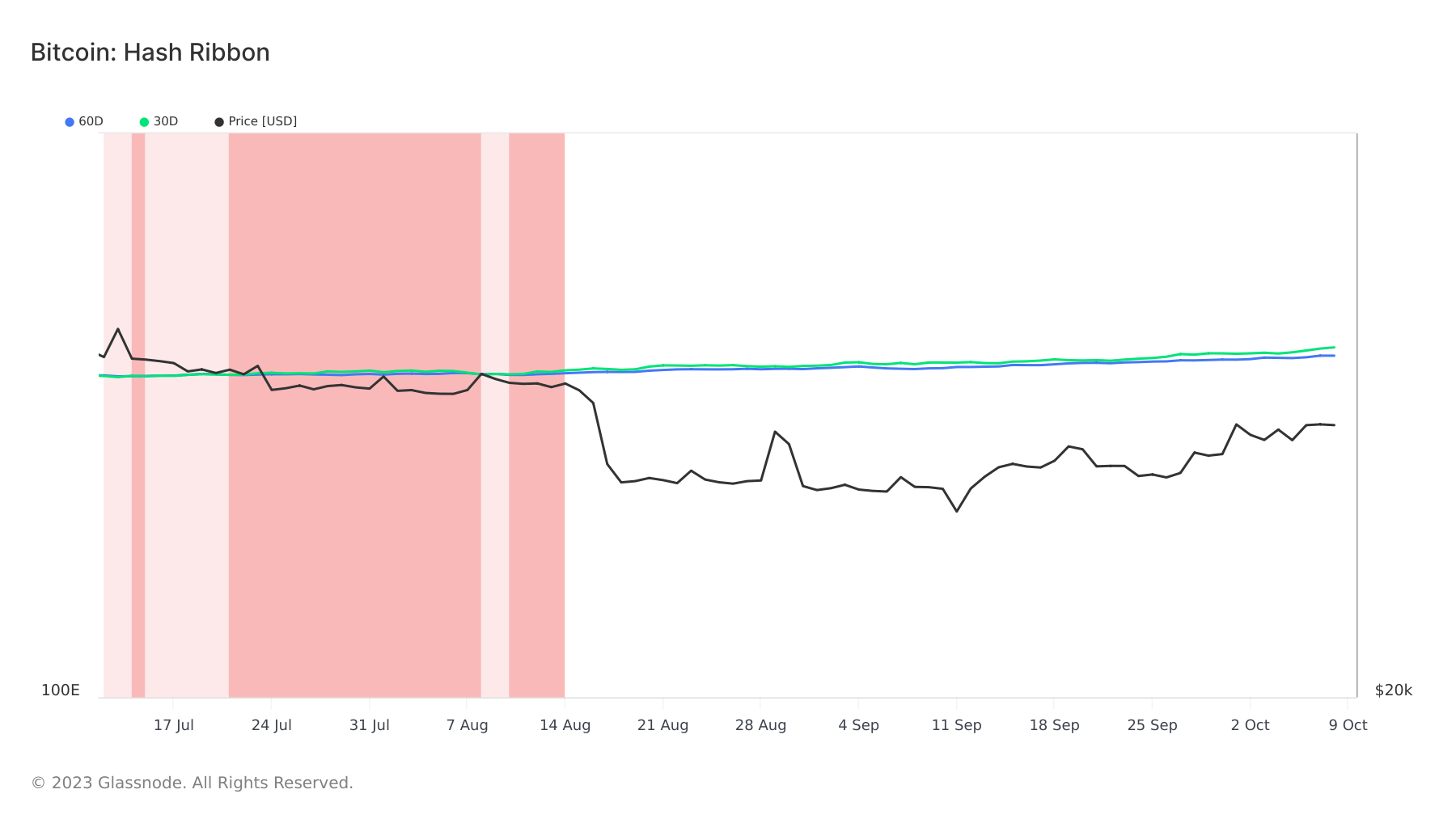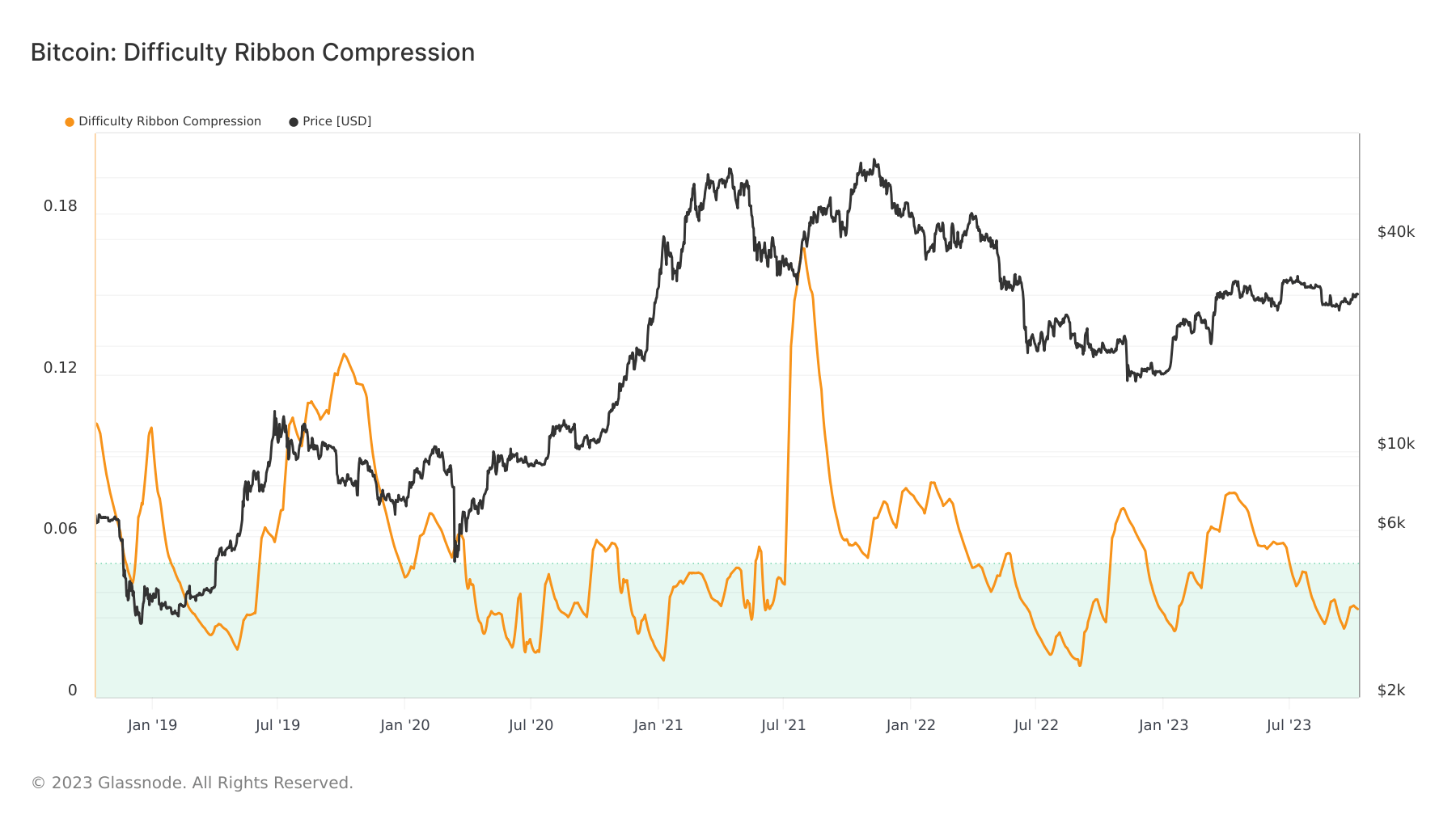Bitcoin’s hash fee represents the full computational energy employed to mine and validate transactions on the community. Past merely representing the sheer computing prowess, the hash fee serves as a barometer for the community’s safety and vitality.
A sturdy hash fee signifies not solely a excessive participation of miners but in addition underscores the community’s resilience towards potential assaults. Monitoring this metric is essential, as fluctuations can supply insights into miner sentiment, potential community vulnerabilities, and the general well being and decentralization of the Bitcoin ecosystem. In essence, the hash fee is a multifaceted indicator, reflecting each the technical power and the collective confidence within the Bitcoin community.
Bitcoin’s hash fee has been posting new all-time highs each week since December 2022, peaking at 501 EH/s on Sep. 15. As of Oct. 8, the hash fee stands at 418 EH/s.
Nonetheless, merely wanting on the hash fee fails to offer extra context to market sentiment. To get a greater understanding of miner well being, we should analyze the convergence and divergence of the shifting averages of the hash fee. Monitoring this metric is essential, as fluctuations can supply insights into miner sentiment, potential community vulnerabilities, and the general well being and decentralization of the Bitcoin ecosystem. Hash ribbons are a multifaceted indicator, reflecting each the technical power and the collective confidence within the Bitcoin community.
Since mid-August, the 30-day MA of Bitcoin’s hash fee has persistently outpaced the 60-day MA. Notably, the ribbons underwent compression in July and August, a phenomenon traditionally indicative of miner capitulation. Nonetheless, the divergence between these two shifting averages has been widening because the begin of October 2023, coinciding with Bitcoin’s ascent to $28,000. This divergence means that miners are bullish, ramping up their operations in anticipation of upper costs.

Mining problem, one other cornerstone metric, adjusts roughly each two weeks to make sure that blocks are added to the blockchain at a constant interval. The Issue Ribbon Compression metric offers insights into miner promoting strain. Traditionally, excessive compression zones, marked by low values on this metric, have signaled profitable shopping for alternatives for Bitcoin. Conversely, spikes on this metric have typically been in tandem with Bitcoin’s value surges. As of June 30, the problem ribbon compression was under the 0.05 threshold, and as of October 8, it stood at 0.032, suggesting potential upward value momentum.

The rising hash fee underscores a strong and safe community, whereas the hash ribbons and problem ribbon compression trace at bullish miner sentiment and potential value appreciation.
The publish Mining metrics suggest bullish sentiment for Bitcoin appeared first on CryptoSlate.



Discussion about this post